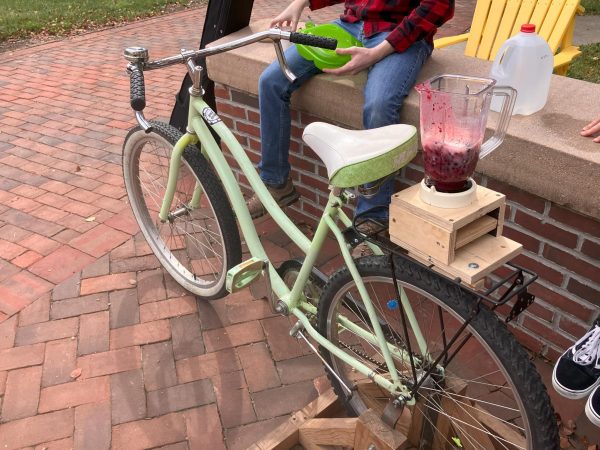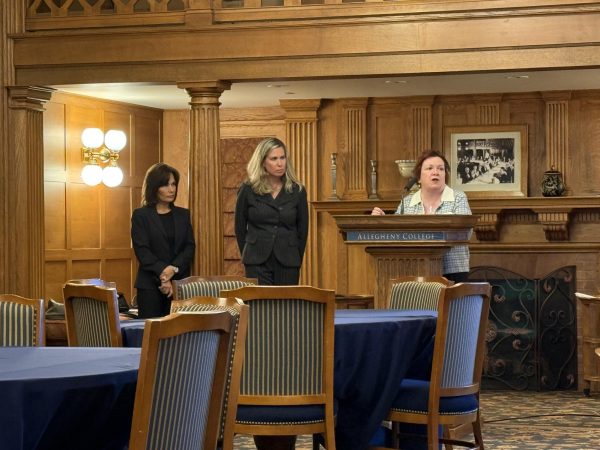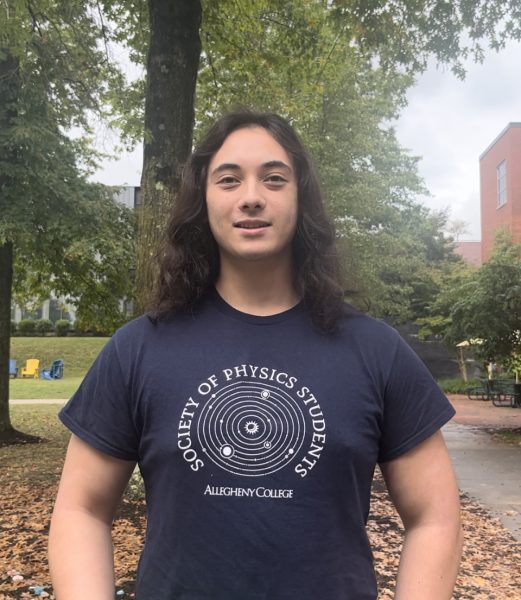Cole addresses concerns regarding summer student housing
Provost and Dean of the College Ron Cole spoke to Allegheny Student Government at its general assembly meeting on Tuesday, March 7. Cole primarily spoke primarily on changes to summer housing for students conducting research on campus.
Cole said he wanted to ensure ASG had the correct information regarding summer housing for students conducting research. He said since the changes were made, he has heard concerns from students on how it will affect them.
In the past, Cole said students have had to pay the tax on the value of their living space. This came out to approximately $13 a week, according to Cole. Under the new system, students must pay a weekly fee of $75 a week.
Under the Affordable Care Act, Cole said the college had to also switch to paying students by the hour, as opposed to paying them a weekly stipend of $300 a week. To make up for the increased cost of housing to students, Cole said the college raised the pay rate to $10 an hour, with hours capped at 35 a week.
This, according to Cole, means students will be receiving approximately $12 less each week, after paying the housing fee. He said the college worked to try and limit the effect of the change on students, because it believes in the value of summer research opportunities.
“I am deeply invested in our student experience over the summer,” Cole said.
In addition to summer research, Cole said students staying on campus through programs like the Bonner Scholars have also had their pay increased and will also a receive a discount on the $75 housing fee. He said he could not yet speak to how much that discount would be for.
To help improve the summer experience for students staying on campus, Cole said the college is also working to provide more services to students. He said the college is hoping to work out a bus schedule that will allow students to get to grocery stores in Meadville at least once a week.
Cole said the college plans to begin improving and renovating some of the kitchens in dorms used by students over the summer so they are able to cook and therefore limit their food expenses. He said these initiatives are all in their early stages and he is still looking for input.
“I would love to hear from students on what would work best,” Cole said.
Cole told ASG that he hopes to improve the level of communication between administration and students. He said many students do not seem to realize that there is work being done in college committees throughout the academic year.
“A lot of people don’t know what is going on in those committees,” Cole said.
While the minutes of most committee meetings are available on the college’s DSpace, Cole said information can often be hard to access. He said he has spoken with the Information Technology Services and College Relations about finding a new way to get information out online through some other platform that is easier for students to access and navigate.
“That might help with that flow of information,” Cole said.
Cole said he wanted to emphasize to students that most decisions at the college include some form of input from students before they are implemented.
“Very little gets done without some shared governance,” Cole said.
Compared with other schools, Cole said, Allegheny does far more to work with student government and hear input.
During his cabinet report, Luke McBride, ’18, reported on a meeting he attended with other members of ASG and college administrators on the idea of shared governance between students, ASG and the college.
McBride said the issue that was discussed more than any other at the meeting was the need for better interactions between ASG, students and administrators. He said the need for improvements to internal interactions was also brought up.
“The biggest theme was that there needs to be good communication,” McBride said.
Sen. Walter Stover, ’17, said the Class of 2017 has been exploring the possibility of installing a rock climbing wall in the David V. Wise Center. He said after initial meetings with representatives from the physical plant, they think they have found a suitable site.
Stover said the current proposed location would be on the columns of the blue courts. He said the site was picked primarily because the columns were structurally able to take the weight and because they would be easily accessible to students.
“It would be available pretty much at all hours since it’s relatively out of the way,” Stover said.
The project, Stover said, is far from a sure thing and still needs to be investigated further to ensure there are no safety regulations that they should be aware of moving forward.
The wall, according to Stover, would run up the columns and also wrap around the sides. He said the proposed height, is currently set to be around 10 to 12 feet.





